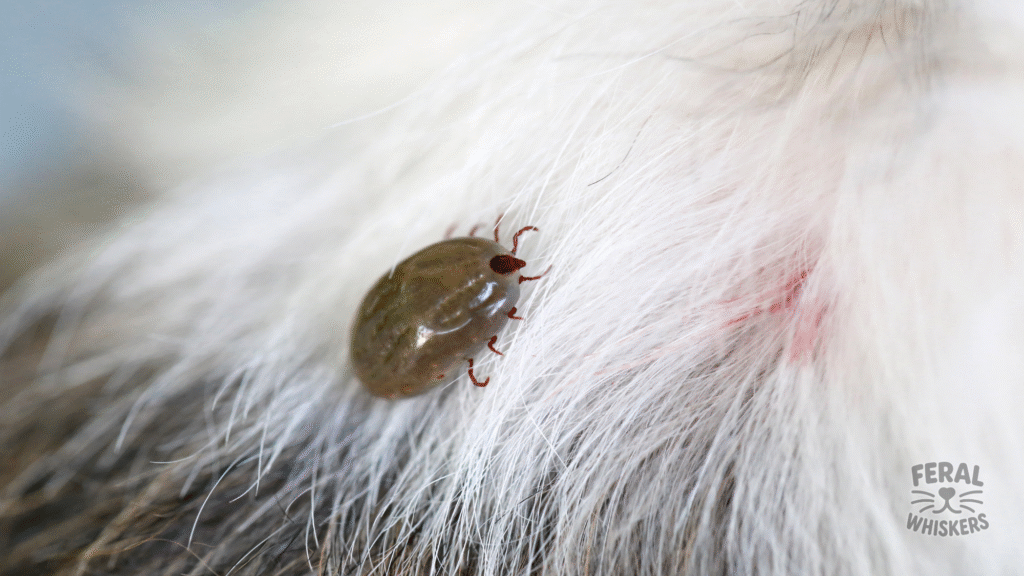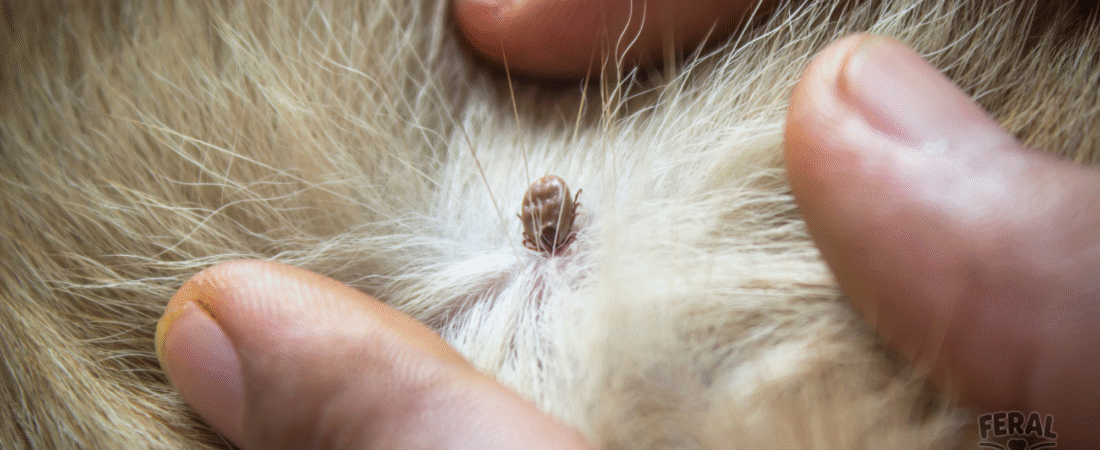Why Ehrlichiosis Matters

Ehrlichiosis (often nicknamed “tracker dog disease”) is a tick-borne illness caused mainly by the bacterium Ehrlichia canis, transmitted by the brown dog tick.
It first became widely known after infecting military and working dogs (“trackers”), hence the name. Today, it remains a global issue for household pets — especially in warmer climates where ticks thrive.
Ehrlichiosis can cause fever, weight loss, bleeding disorders, and chronic immune problems. Some dogs may recover quickly; others can develop lifelong health complications.
How Ehrlichiosis Spreads
- Tick bites — especially the brown dog tick (Rhipicephalus sanguineus).
- Infected blood transfusions (rare, but possible).
- Dogs do not spread Ehrlichia directly to each other — ticks are needed as carriers.
Symptoms of Ehrlichiosis in Dogs
The disease has 3 stages: acute (early), subclinical (“hidden”), and chronic.
Acute Stage (1–3 weeks after infection):
- Fever
- Lethargy
- Appetite loss
- Swollen lymph nodes
- Low platelet count (detected by blood test)
Subclinical Stage (can last months to years):
- No obvious signs, but bacteria hide in the spleen
- Dog looks healthy but is still infected
Chronic Stage (severe, long-term disease):
- Chronic weight loss
- Weakness
- Nosebleeds, bleeding gums, or small red “pinpoint” spots on skin (petechiae)
- Eye inflammation
- Enlarged spleen or liver
- Neurological issues in severe cases
When to See a Vet 🩺
See your vet if your dog has:
- Unexplained fevers, lethargy, or anorexia after a tick bite.
- Repeated or prolonged bleeding (nosebleeds, gum bleeding).
- Chronic weight loss, weakness, or eye problems.
- History of tick exposure followed by sudden illness.
Diagnosis
- Blood tests for low platelets (a hallmark of Ehrlichiosis).
- Special antibody or PCR tests to confirm infection.
- Repeat testing may be needed since infection can hide in the subclinical stage.
Conventional Treatment
- Doxycycline for 4–6 weeks (main antibiotic).
- Corticosteroids may be used for severe immune-related complications.
- Blood transfusions in life-threatening anemia or bleeding cases.
Most dogs improve within days of starting antibiotics — but chronic cases may require longer treatment or ongoing monitoring.
Holistic Support & Prevention 🌿
Holistic care cannot replace antibiotics (which are essential here) but can strengthen immunity, aid recovery, and help prevention by making dogs less tick‑friendly.
🥣 Diet Support for Recovery
Boosting immune and anti-inflammatory defenses is key:
- Protein-rich diet → turkey, fish, chicken to rebuild strength.
- Omega‑3s (fish oil, sardines) → reduce inflammation and support platelets.
- Antioxidant foods → blueberries, broccoli, spinach to strengthen immune cells.
- Iron-rich ingredients (for dogs with anemia): beef liver (small amounts), pumpkin, green beans.
👉 Simple Recovery Recipe:
- 1 cup boiled turkey
- ½ cup sweet potato (iron + energy)
- ¼ cup steamed broccoli (antioxidants)
- 1 tsp fish oil
Serve warm 2–3x weekly as a supplement meal.
🌿 Holistic Remedies
- Astragalus + Echinacea → immune support (herbal tinctures in small doses, per holistic vet guidance).
- Milk thistle → supports liver, especially if meds stress the liver.
- Probiotics → restore gut health after long antibiotic courses.
- Turmeric + black pepper → natural anti-inflammatory (¼ tsp sprinkled over food for medium dogs).
🌿 Natural Prevention Against Tick Bites
CCoV had vaccines, but:
❌ No vaccine for Ehrlichiosis exists for dogs. Prevention relies on tick control.
- Use vet-approved tick preventatives (topicals, chewables, tick collars).
- Check dog’s ears, paws, armpits, and belly daily after walks.
- Keep grass trimmed and avoid heavy brush.
- Natural tick repellents (as supportive additions, not replacements):
- Diluted neem oil spray on coat (never undiluted).
- Apple cider vinegar spray (mix 1 part vinegar + 1 part water, mist lightly).
Expectations & Long-Term Care
- Catch it early: most dogs recover well with antibiotics.
- Chronic stage: dogs may struggle with recurring illness, anemia, or weakened immune systems.
- Lifetime monitoring: yearly bloodwork may be recommended for dogs in high-risk tick areas.
Human Risk
Ehrlichia canis rarely infects humans, but other species of Ehrlichia do (especially Ehrlichia chaffeensis). The ticks that carry Ehrlichia bite both dogs and humans, so controlling ticks protects the whole household.
Final Takeaway
Ehrlichiosis is a tick-borne bacterial disease that can be mild or devastating depending on how quickly it’s caught. Antibiotics are life‑saving, but holistic support (immune diets, herbs, liver support, probiotics, and natural tick repellents) makes recovery stronger and prevention more sustainable.
✅ No vaccine exists — so prevention is everything through tick control, regular checks, and a boosted immune system.

